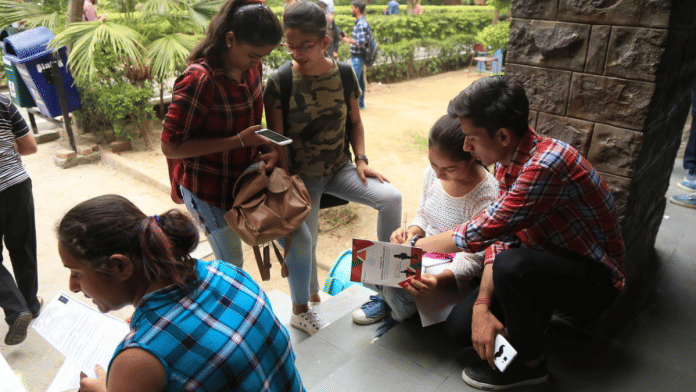
Thank you dear subscribers, we are overwhelmed with your response.
Your Turn is a unique section from ThePrint featuring points of view from its subscribers. If you are a subscriber, have a point of view, please send it to us. If not, do subscribe here: https://theprint.in/subscribe/
There are three special characteristics to India and Indians that are both a bane and a boon depending on usage; the chalega and chalta hai attitudes and the uncanny knack for jugaad; of these three, chalega is more a boon, chalta hai and jugaad are both a boon and a bane. We will do well to research and adapt these strong idiosyncrasies of us Indians and develop them positively rather than look elsewhere for improving the system. Every Indian has used one or more of these methods some time in their lives to achieve desired results. The adoption of our strengths will pay more dividends rather than striving to adapt to alien ways.
Chalta hai
The characteristic collective psyche, chalta hai, is a certain carefree and flexible approach to life. The chalta hai mindset is a pervading trend showing disdain for rules that I suspect is shackling the Nation’s progress politically, economically and in every which way there is. Over time chalta hai has acquired meanings for instances other than circumventing rules. Whenever accepted norms or courtesies are overlooked, when one just does not put in that extra bit and accepts everything as it exists and whenever it is convenient in a circumstance, it is chalta hai.
Chalta hai stops us from going the extra mile. How does it matter if our legislators are elected by only about a fourth of India’s population – chalta hai. The big fat Indian wedding is a myth. In the end everything does not fall into place – it is just that whatever happens, chalta hai. And this attitude of taking things casually peters down to even our day to day interactions as many feel the chalta hai attitude works for them – so the young think chalta hai is how it should be – and this dangerous legacy is handed down by generations.
What is required is a national character that draws out the best from people and does not encourage ‘chalta hai’ in its present form. We have to get over that it is chalta hai to throw garbage over the boundary wall into the neighbour’s compound
Chalega
I distinguish chalega from chalta hai this way; while chalta hai is a submission, chalega is a challenge.
Immigrant Indians spanned out across the globe since early twentieth century in search of a livelihood. Their biggest skill set was a chalega attitude. In the distant lands the early Indian settlers, settled for the minimum to earn maximum. Chalega was the dominant factor in that adjustment. The harsh environment and some subhuman treatments were par for the course – chalega. For those who sought their fortune in the deserts of Gulf during the 80-90 decades, cramped dwellings and one meal a day were fine – chalega. The money they sent back home helped the families to progress, in the process, boosting the domestic economy as well.
Black tea is just as fine if the milk curdles – chalega.
Jugaad
Jugaad is a Hindi word that literally means an arrangement or a work around, necessitated by a lack of resources. Jugaad is anathema to purists and practitioners of the highly rated Japanese or other structured methods of product development and maintenance. During the latter decades of twentieth century, Jugaad has invaded territories other than engineering. According to Swaminathan Ankalesaria Iyer, in 2010, 81% businessmen in India say the main reason for their success is jugaad, the ability to find legally innovative ways around prohibitive rules and institutions. He said that “this is the key finding of a survey of 4,000 businessmen by YouGov, a top online survey organisation, and the Legatum Institute, an independent think tank. The survey represents the subjective view of Indian entrepreneurs, but has a ring of truth.”
(https://swaminomics.org/jugaad-is-our-most-precious-resource/). There are proponents and opponents of jugaad. But this word has gained so much power that you can find it in the management jargon of highly rated B schools; in its Westernised Avtar it is known as frugal engineering and frugal innovation.
You may say India has moved on. But Jugaad remains. It has to remain. Jugaad is not an innovation as perceived by purists, but it definitely is an inspiration on how to create products using available technology that meets the price value equation.
Tailpiece: Each and every Indian has to be conscious and contribute to building a national character for a better and secured Nation, especially in a “global village” scenario. We have come a long way. We now have an opportunity to take the Nation to another level of all round progress. The best way to build a national character is to shun chalta hai and adopt chalega and Jugaad to modern methods, quality and technology. I doubt whether Artificial Intelligence, as yet, can invade these two areas. As a decided advantage in the area, it is a boon.
These pieces are being published as they have been received – they have not been edited/fact-checked by ThePrint.


COMMENTS